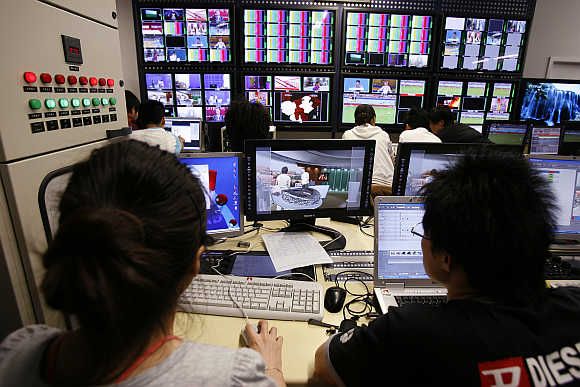
The Digital India vision is disruptive thinking at a macro level that has the potential to change the living conditions of 1.2 billion people, and bridge the gap between Bharat and India.
A tad ambitious but within reach, if the execution is as strong as the resolve.
To start with, the digital infrastructure of the country is at a stage where the pillars are yet being built. Broadband highways, universal mobile coverage, public internet access and electronic manufacturing are the requisite pillars.
There are specific and time-bound goals to be achieved.
More than 250,000 gram panchayats are yet to be connected through broadband, 42,300 mobile-uncovered villages to be brought under the radar, most 150,000 post offices and a similar number of common service centres are yet to have broadband internet access.
Equally, this design will have to be adequately provided for with equipment (physical), to support this level of connectivity and integration, and bring about a semblance of preparedness.
Most of these projects will require active collaboration through public-private partnership models and will have to be enabled by a policy framework of the Centre and key states.
Most important is funding. Can this be brought under the Universal Service Obligation Fund and under a composite tax structure?
Telcos will have a pervasive role and will vie for the right amount of spectrum, to support this connectivity 24/7.
The implementation will be in a phased manner, where service-level agreements will have to be ruthlessly monitored to optimise on costs and minimise leakages.
Minimum government yet maximum governance is the panacea advocated for addressing this gap between the haves and the have-nots.
This vision can fructify through e-government, electronic service delivery and information made open to all.
If online has to be the sine qua non for 1.2 billion people, then the information technology interface has to work efficiently, backed by a robust off-line physical delivery mechanism, with appropriate integration of both.
Even the concept is mind-boggling in its ambitiousness and audacity. Transparency, large-project management skills, harmonisation and data authenticity, cyber security and domain expertise will all need to be addressed concurrently, continually, and through a network of stakeholders, who are at various stages of evolution.
This is being thought through at various levels but the outcome will rest on execution.
The unbanked and the millions with little or no access to basic health care, education, etc, all make this strategy an imperative for rapid national development.
It is often said India has missed many an important bus. Probably so.
By digitally empowering its citizens, the government can undo a lot of these misses and create a level-playing field.
The ability to optimally leverage all that is being envisaged calls for a massive overhaul of the education system.
It is a pre-requisite that digital literacy (easier to impart than normal literacy) reaches the masses, creates employment opportunities and fosters a culture where technology-enabled services are adopted.
A dream of this magnitude can turn into reality when we collaborate with stakeholders, who represent a microcosm of the Indian diversity.
The Budget is just round the corner.
There is cause for hope, that the finance minister will unveil an attractive package this February, and bring us a step closer to realising the Digital India dream.
R Chandrashekhar is president, Nasscom











